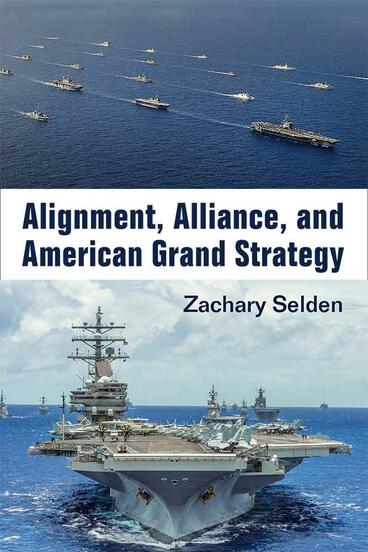Alignment, Alliance, and American Grand Strategy
Joining the debates about preserving US military power abroad, Selden recommends encouraging security alliances
Description
Although US foreign policy was largely unpopular in the early 2000s, many nation-states, especially those bordering Russia and China, expanded their security cooperation with the United States. In Alignment, Alliance, and American Grand Strategy, Zachary Selden notes that the regional power of these two illiberal states prompt threatened neighboring states to align with the United States. Gestures of alignment include participation in major joint military exercises, involvement in US-led operations, the negotiation of agreements for US military bases, and efforts to join a US-led alliance. By contrast, Brazil is also a rising regional power, but as it is a democratic state, its neighbors have not sought greater alliance with the United States.
Amid calls for retrenchment or restraint, Selden makes the case that a policy focused on maintaining American military preeminence and the demonstrated willingness to use force may be what sustains the cooperation of second-tier states, which in turn help to maintain US hegemony at a manageable cost.
Zachary Selden is Assistant Professor of Political Science at the University of Florida.
Reviews
“When it comes to prominent analyses of alliance politics within the field of international relations, Selden shows quite convincingly the limits of the conventional wisdom, whether realist, liberal, or constructivist. As Selden puts it so well, American allies will only assist in the maintenance of American hegemony if the U.S. demonstrates both the capability and the will to defend it. Altogether this is an argument with solid empirical support—surprising yet persuasive—strong theoretical implications, and demonstrable policy relevance.”
—Colin Dueck, George Mason University
“Timely and well-researched, Alignment, Alliance, and American Grand Strategy makes convincing and well-supported cases about the dynamics of US power in the contemporary IR environment. As such, it adds explanatory power to our understanding of some quite important political relationships.”
—Scott Jones, University of Georgia

